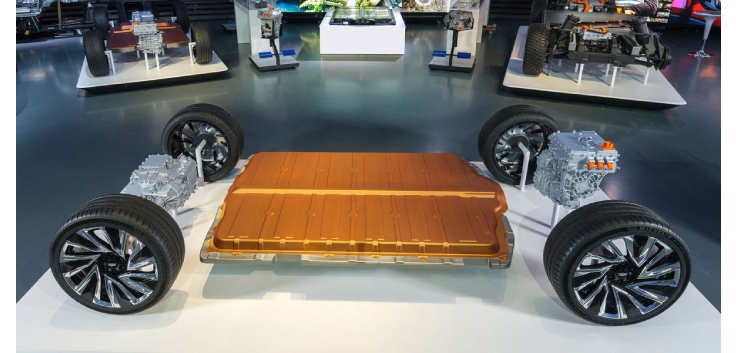Width
Current Selection:
Make
Current Selection:

Electric Car Batteries Vs. Standard Ones: Key Differences
The huge increase in electric cars on the road and all the noticeable advancements in technology lead us to compare a lot of different segments in these vehicles. Our goal is to educate our readers but also show our expertise when comparing both standard and electric vehicles. Today’s topic is car batteries and all of the differences between conventional car batteries versus electric ones.
As you can guess, electric vehicles are powered by an electric motor, which makes them a lot different compared to standard ones. The motor relies on efficient batteries to store the energy required to get anywhere, and we are showing you the differences below.
1. Size: They serve different purposes
The primary difference between these two battery types is their size. However, that is based on their main responsibility. In this manner, a normal combustion engine battery is only used for a few things – mainly the starter motor, as well as auxiliary components (lights, alarms, radio).
Electric car batteries are meant to power the auxiliary components of a car but are primarily responsible for providing a massive amount of power to move the car. The massive amount of power is what requires it to be a lot bigger – while a normal car battery would only power the stereo, lights, and starter motor, the EV car battery needs enough capacity to move the car entirely.
As a result, today’s EV batteries span from 28.9 kWh (in the Mini Cooper SE, for an EPA range of 110 miles) to roughly 200 kWh in the coming 2022 GMC Hummer EV pickup. The average capacity is around 40kWh, and a regular Tesla model has a 50Kwh battery.
2. Materials: They are very different
Another dramatic difference between standard and electric car batteries is the material that is used to make them. Normal ones don’t need to hold plenty of power and are usually recharged by the engine once they get the car going. As such, it’s economical to make them from a lead acid compound because lead is cheap and weight doesn’t matter.
However, with EV car batteries, lightness is important. These models need to be able to output huge amounts of power instantaneously. The heavier the electric vehicle is, the more power is required to move it. Using Lithium Ion mixtures for the battery allows these manufacturers to keep the models light and output large amounts of power in short bursts.
3. Voltage: Big vs. small
Normal vehicle batteries operate on a 12V basis. In comparison, electric car batteries run on voltages as high as 600V, which is 2.5 times the voltage of normal household electricity. While normal car batteries require 12V as the ideal standard for powering electronics, the cables in EV batteries are thin enough to be manageable and economically viable.
In fact, operating voltage proves to be the most prominent difference between standard and electric vehicle batteries. The average operating voltage of mass-produced electric cars has reached up to hundreds of volts and is usually 350-450 V on average nowadays. But that is not even the highest limit – for instance, the e-platform of a Porsche Taycan relies on an 800 V battery.
4. Duration
Last in the key differences is the ability of the battery to hold its charge. You probably know how standard vehicles rely on their batteries to help turn on the car and its engine. However, once that happens, the alternator and engine take over to power the car.
Due to the lack of an engine, electric cars require the battery to power all of their movement, which is why the battery continuously discharges energy as the car runs to power it. Therefore, electric cars need much stronger and longer-lasting batteries. While a standard car battery lasts around 2-3 months before a charge, an electric car battery needs charging far more often. Still, most EV batteries need to be charged every 300-400 kilometers or so.
Summary
Whether you have an electric car or a standard one, it’s important to know the difference between these car batteries. Most importantly, however, you need to know how to care for your battery.




The information below is required for social login